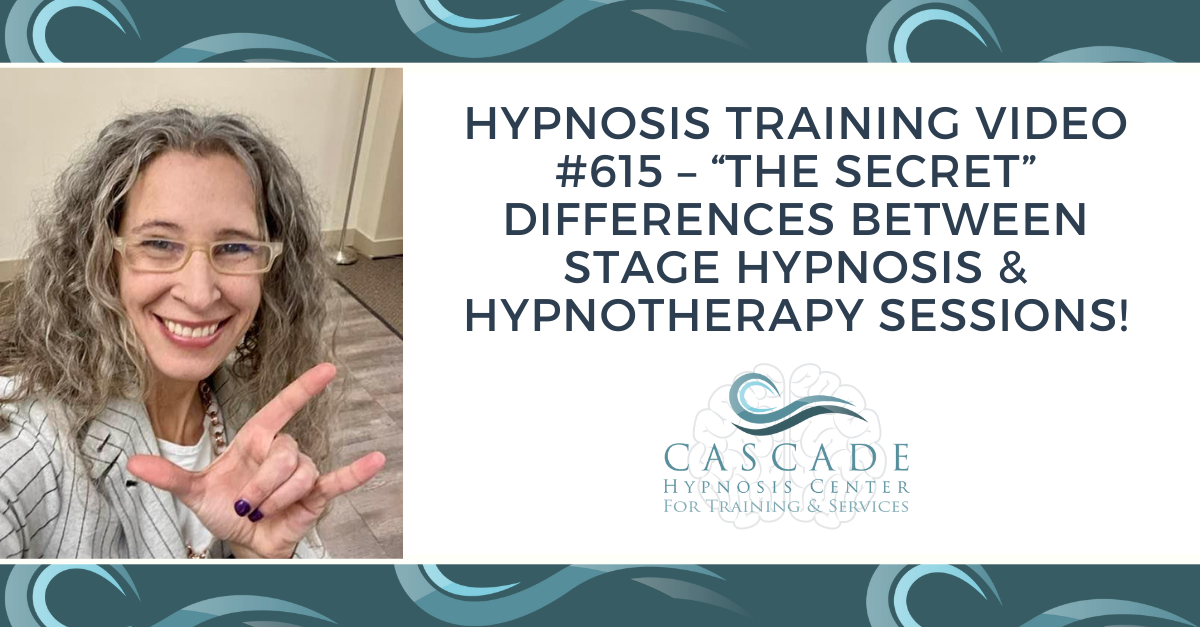Elevating Careers with Hypnosis and Hypnotherapy Training: A Professional Exploration
In the realm of professional development, the integration of hypnosis and hypnotherapy as supplementary skills has garnered substantial attention. This article delves into the practical applications of hypnosis in various careers, showcasing the potential benefits and contributions that hypnosis training can offer.
Note: Please note that hypnosis should always be conducted with mutual consent and agreement. It is important to use hypnosis as a standalone service and avoid combining it directly with other services (example: don't try to hypnotize someone at the same time as massaging them). Always prioritize the well-being and comfort of participants when incorporating hypnosis techniques.
1. Clinical Counselors and Therapists: Within the field of mental health, practitioners equipped with hypnotherapy skills possess a unique tool-set to aid clients in managing anxiety, phobias, and entrenched behavioral patterns. By seamlessly integrating hypnosis into therapeutic sessions, practitioners can offer a holistic approach to addressing underlying psychological concerns.
2. Medical and Dental Professionals: The medical domain is increasingly recognizing the value of hypnotherapy in managing pain, alleviating stress, and enhancing overall patient experience. Healthcare providers who undergo hypnosis training can amplify their patient care by incorporating these techniques into pain management, preoperative preparation, and even aiding in addiction recovery.
3. Life and Executive Coaches: In the realm of coaching, the inclusion of hypnotherapy techniques can empower clients to overcome self-imposed limitations, bolster their confidence, and refine their goal-setting strategies. Coaches adept in hypnosis can guide individuals toward substantial personal and professional transformation.
4. Massage Therapists and Acupuncturists: Often the first professions people turn to when they are seeking relaxation is a body worker. By offering hypnosis as an additional service to be done before or after massage/acupuncture, clients can experience a deeper sense of relaxation that goes deeper than any body therapies.
5. Motivational Speakers and Presenters: Public speaking is a cornerstone of many professional roles. With hypnotherapy skills, individuals can develop heightened self-assurance, refine their stage presence, and effectively uncover the message they will be sharing to captivated audiences.
6. Reiki Masters and Energy Healers: Alternative therapies have gained much praise for their holistic approach to deeply personal problems. Reiki masters can enhance their empathetic and channel nature by utilizing hypnotherapy to help clients reach brand new levels of spiritual connection.
7. Human Resources Specialists: Within the corporate landscape, human resources professionals adept in hypnotherapy can design and implement stress reduction programs, workplace wellness initiatives, and performance enhancement strategies. These efforts contribute to fostering a healthier and more productive work environment.
8. Sports and Performance Coordinators: In the realm of athletics, the integration of hypnosis techniques can enhance mental fortitude, motivation, and performance. Sports coaches and performance coordinators can utilize hypnotherapy to aid athletes in achieving their peak potential and overcoming psychological barriers.
9. Rehabilitation Specialists: For professionals working in physical rehabilitation settings, hypnotherapy can serve as a supplementary approach to aid patients in managing pain, accelerating recovery, and maintaining a positive outlook during the rehabilitation process.
10. Yoga Instructors: Whether students are looking for a physical release or spiritual connection, hypnosis helps achieve those yoga goals. Instructors can use hypnosis to enhance breath-work, anchor in an intention, or heighten spiritual connections.
In each of these esteemed professions, the integration of hypnosis and hypnotherapy training can offer an added layer of versatility and efficacy. It's important to note that pursuing such training necessitates dedication, formal education, and ongoing practice. Nevertheless, the rewards manifest as a heightened ability to positively impact the lives of individuals under one's care or guidance.
By adopting a strategic approach to enhancing one's skill-set, professionals can expand their repertoire, driving innovation and progress within their respective domains. Hypnosis and hypnotherapy open doors to refined approaches in addressing complex challenges and promoting holistic well-being across many professional services.



